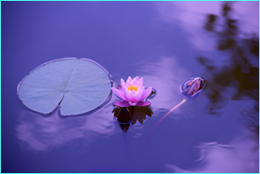Speak up!
If you've written a blog, wish to share a story, or have an idea that you believe would help those visiting the End With Care website, please send it along. If fitting, we'll add your voice to End With Care.
I've got an ideaDeath in Different Religions
Posted on October 8, 2019
 Spirituality at the End of Life
Spirituality at the End of Life
For many people at the end of life, it is common to question life’s meaning and establish one’s beliefs about death and the afterlife. Religion or spirituality can provide comfort and strength at such a sensitive time. When death is near, one may embrace a new religion or return to a belief system that they stopped practicing years ago. Some may find respite in prayer or meditation, while others may not be interested in spirituality at all. Here is a look at the way some of the world’s major religions deal with death and dying.
Christianity
Most Christians believe in the resurrection of Jesus and the existence of the afterlife. Many believe that moral decisions that we make on Earth determine whether we go to Heaven or Hell. Catholics believe that before we reach Heaven, we must first pass through Purgatory, a place where we must purify our sins. Catholics also believe that praying for the deceased can help them get into Heaven from Purgatory.
A Christian patient on her deathbed may want a minister to prepare her for death by reciting prayers of reconciliation. Family members may say prayers or sing hymns while their loved one is dying to comfort her.
Islam
Muslims believe that after our physical death on Earth, our soul lives on and goes to the Angel of Death to wait for Judgement Day. The Qur’an teaches that on the day of judgement, the righteous will go to Jannat (Paradise) and the sinners will go to Jahannam (Hell).
Most followers of Islam practice special rituals for preparing the dying and the deceased. A prayer called the Talqeen is performed for those who are dying to prepare them spiritually for the journey into death. Once the person has passed away, the next step is to perform the ghusl, or the washing of the deceased person’s body.
Judaism
Judaism is ambiguous about what happens when we die. While Jews tend to focus more on their life on Earth, most Jewish people believe in an afterlife, and it can come in many forms. Some Jews believe in reincarnation, while others believe in the World to Come, which is similar to Heaven.
Similar to Muslims and Christians, Jews also recite a special confession prayer for someone who is dying. They also wash and cleanse the body to prepare for burial. After the burial, close relatives may observe Shiva, a period of seven days of mourning, in the deceased’s home.
Buddhism
Buddhists believe that when we die, we are reincarnated into another body. After death and before rebirth, each person passes through the state called Bardo, which can be a time of great insight and liberation. For Buddhists, the ultimate goal is to break out of the cycle of reincarnation by attaining Nirvana, an end to suffering. In order to reach such a state of enlightenment, Buddhists believe we must meditate and purify our minds.
Since Buddhists believe that death is the beginning of a new reincarnated life, end-of-life rituals can be an important way to send off the person to the next realm. The patient may refuse pain medication in order to remain mindful of the death process, and family and friends may chant to calm the patient’s mind.
Hinduism
Hindus share similar beliefs with Buddhists when it comes to death and the afterlife. They also believe in reincarnation, and believe that we can be reborn not only into humans, but also into animals, plants, or even insects.
A Hindu may wish to die at home surrounded by family and friends as they sing sacred hymns, pray, read sacred verses or chant. These rituals are meant to keep the patient’s focus on Brahman, or the “Supreme Spirit.” After death, a Hindu’s body will be cremated, and the ashes may be scattered in the sea to transport them to the next life.
Atheism
Those who do not have a belief system or do not believe in the afterlife may have a number of different views about death and dying. Some may take comfort in the natural world, or by reflecting that our ancestors continue to live through us and future generations.
 Contemplating life’s mysteries can be an important part of the end-of-life process, whether we are religious, spiritual, or not. It may help to talk about your thoughts and feelings with a spiritual care practitioner (sometimes called a pastoral carer or chaplain). These experts have the knowledge and compassion to discuss spiritual issues, whatever your religion or even if you are atheist or agnostic. To find a spiritual care practitioner in Massachusetts, please visit our resource directory.
Contemplating life’s mysteries can be an important part of the end-of-life process, whether we are religious, spiritual, or not. It may help to talk about your thoughts and feelings with a spiritual care practitioner (sometimes called a pastoral carer or chaplain). These experts have the knowledge and compassion to discuss spiritual issues, whatever your religion or even if you are atheist or agnostic. To find a spiritual care practitioner in Massachusetts, please visit our resource directory.


